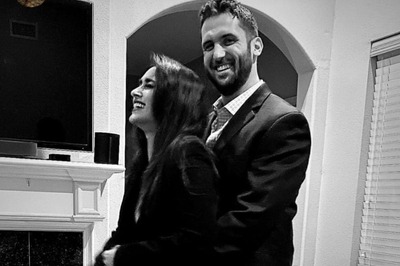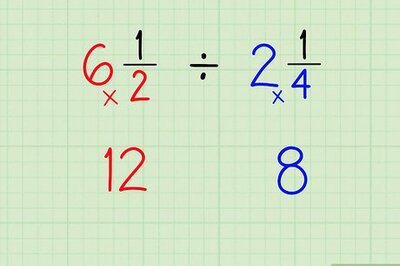
views
New Delhi: Justice Rohinton F Nariman, writing his separate verdict on the validity of Section 377, said the Central government saw the “writing on the wall” when it decided not to oppose the petitions seeking decriminalisation of gay sex between consenting adults.
Justice Nariman pointed out that after the nine-judge bench ruling in the right to privacy, Section 377, insofar as it applies to same-sex consenting adults, could not demean the LGBT members by having them prosecuted instead of understanding their sexual orientation and attempting to correct centuries of the stigma associated with such persons.
“The Union of India, seeing the writing on the wall, has filed an affidavit in which it has not opposed the Petitioners but left the matter to be considered by the wisdom of this Court,” said the judge. He added: “Parliament is also alive to privacy interests and the fact that persons of the same-sex who cohabit with each other are entitled to equal treatment.”
Justice Nariman also laid emphasis on the definition of ‘mental illness’ in the 2017 parliamentary statute, namely the Mental Healthcare Act, and said the enactment throws a great deal of light on recent parliamentary legislative understanding and acceptance of constitutional values.
The judge highlighted that the essence of the Act will make it clear that “homosexuality is not considered to be a mental illness” and that this is a major advance in our law which has been recognised by Parliament itself.
Apart from various other provisions in the Act, Justice Nariman referred to Section 21(1) (a) (1) that says there shall be no discrimination on any basis, including gender, sex, ‘sexual orientation’, religion, culture, caste, social or political beliefs, class or disability.
“This Section is parliamentary recognition of the fact that gay persons together with other persons are liable to be affected with mental illness, and shall be treated as equal to the other persons with such illness as there is to be no discrimination on the basis of sexual orientation,” held the judge.
He also dubbed Section 309 that penalises attempt to commit suicide as “inhumane” while citing the relevant provisions of the Mental Healthcare Act, which promises medical help to individuals who try to kill themselves.
“Instead of the inhumane Section 309 which has remained on the statute book for over 150 years, Section 115 makes it clear that Section 309 is rendered largely ineffective, and on the contrary, instead of committing a criminal offence, any person who attempts to commit suicide shall be presumed to have severe stress and shall not be tried and punished under Section 309 of the Indian Penal Code,” he underscored.
Under the Act, Justice Nariman said the government has an affirmative duty to provide care, treatment and rehabilitation to such a person to reduce the risk of recurrence of that person’s attempt to commit suicide.
“This parliamentary declaration under Section 115 again is in keeping with the present constitutional values, making it clear that humane measures are to be taken by the Government in respect of a person who attempts to commit suicide instead of prosecuting him for the offence of attempt to commit suicide,” added the judge.
Justice Nariman also asked the Central government “to ensure” that this judgment is given wide publicity through the public media at regular intervals, and initiate programs to reduce and finally eliminate the stigma associated with such persons, besides sensitisation programmes for government officials and in particular, the policemen.




















Comments
0 comment